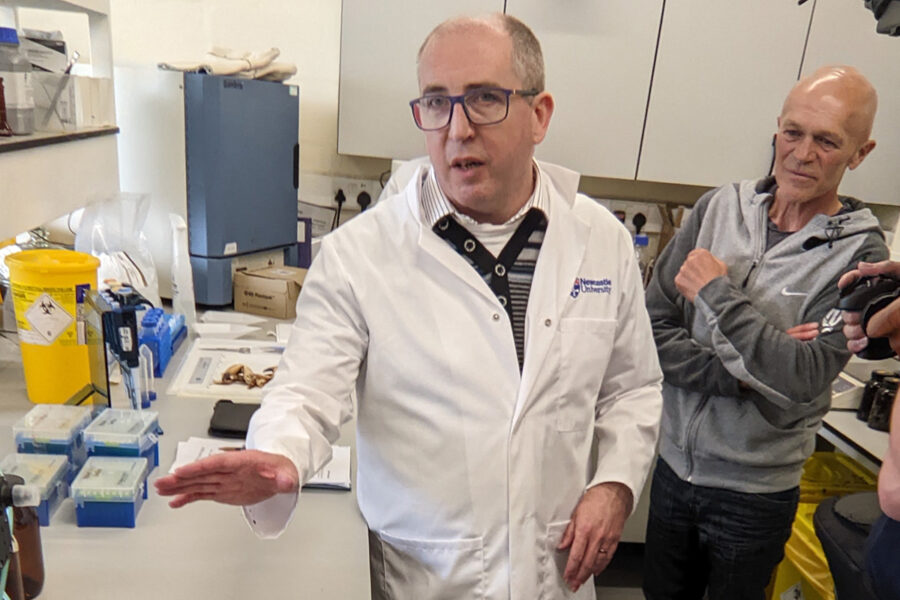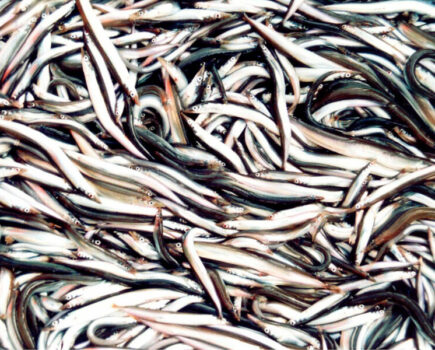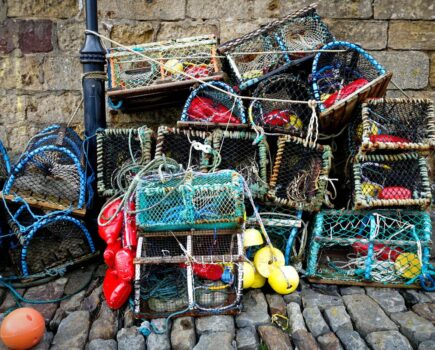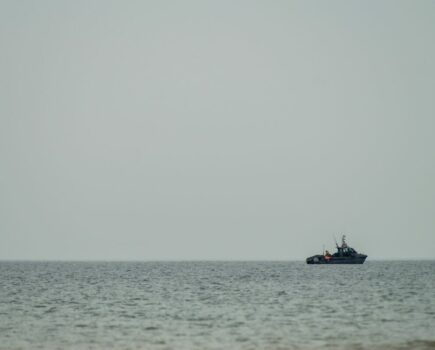After months of wash-ups, empty pots and dying sea life, the lucrative North East coast shellfish fishery has been rocked. To gain better understanding of what might be causing the die-offs, working fishermen from the North East Fishing Collective (NEFC) have been to meet researchers at the Dove Marine Laboratory, part of Newcastle University.
They were accompanied by a BBC film crew, who are documenting the continued saga of the die-offs, and the attempts by fishermen – frustrated by the inaction of Defra, NEIFCA, the Environment Agency and other regulatory bodies – to get to the bottom of the matter themselves.
The NEFC decided to take matters into their own hands to protect their fishing communities and coastal ecosystems. Commissioned by the NEFC and funded by The Fishmongers’ Company, three investigative research projects have already started. Senior researchers from the University of York, Hull University and Newcastle University are all undertaking research topics specific to their fields of expertise, but all looking at the die-off and its possible causes.
Last week as part of this, members of the NEFC went to Newcastle University to meet with ecotoxicology specialist Dr Gary Caldwell, who is overseeing a world-first study to explore the sub-lethal and lethal impact of the toxic chemical pyridine on edible crabs. A previous independent report identified pyridine as a potential suspect in North East mass mortality.
“Understanding the impact of pyridine on crabs could be key to understanding this situation,” he told the fishing representatives from Hartlepool and Whitby.
His novel research is measuring the effect of pyridine in healthy crabs from outside the impacted area. The edible crabs are exposed to the same conditions, barring the pyridine concentrations. The crabs’ behaviour will be monitored during the experiments, giving an insight into the impact of pyridine. After the experiments, the crabs will be dissected and sampled for stress indicators to understand the less observable effects.
“The North Sea is under stress. It is possible the mass mortalities have been caused by a variety of stressors, in which pyridine may have played a part,” continued Dr Caldwell.
The NEFC hopes the independent investigations at Newcastle University, combined with the studies at Hull University and York University, will shed some light on the current desperate situation and give some clear answers.
James Cole, head of Whitby’s Commercial Fishing Association, said: “This is the first step to finding the truth. Even if pyridine is found to have no impact, it helps us in finding the real culprit.
“We thank Dr Caldwell and the other universities, and hope to see full results soon.”
This story was taken from the latest issue of Fishing News. For more up-to-date and in-depth reports on the UK and Irish commercial fishing sector, subscribe to Fishing News here or buy the latest single issue for just £3.30 here.








